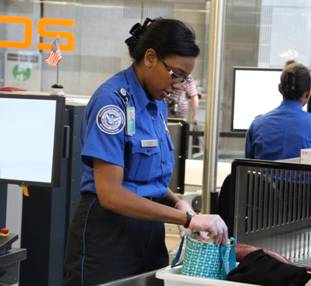What’s in your wallet?
If you plan on traveling any time next year, the question is a pertinent one. Travelers with driver’s licenses from New York, Minnesota, New Hampshire, Louisiana, American Samoa or another state or territory the Department of Homeland Security deems not-compliant with the federal REAL ID act may soon be barred from using theirs as legal identification at the airport.
Up in the air, however, is whether “soon” means early or late 2016 — or a year or more.
DHS has already completed three separate phases of its REAL ID enforcement plan, which covers access to nuclear plants and a wide array of federally protected facilities. However, the next phase adds commercial aircraft to the agency’s access list, and will take place sometime after the turn of the calendar year.
The exact rollout date will be announced soon, said DHS spokeswoman Amanda DeGroff adding that the agency will “ensure that the traveling public has ample notice before any changes are made that could possibly affect their travel planning.”
Until then, DeGroff said the Transportation Security Administration will continue to accept state-issued driver’s licenses and identification cards from all states.
This means some travelers may be in for an unpleasant surprise at airports next year.
While almost two dozen states issue driver’s licenses that are compliant with the law, numerous others have raised privacy and cost concerns. They, along with some independent advocacy groups, actively oppose the measure.
Some states, like Oklahoma, have laws on their books that explicitly prohibit complying with REAL ID; meanwhile, about two dozen non-complaint states have been granted extensions.
Turned away?
It’s unlikely the rule will take effect January 1, given the hurdles to compliance and the broad opposition.
“We expect that New Yorkers with standard-issue licenses will have more than a year notice before any change is implemented,” said Casey McNulty, a spokesman for the Empire State’s Department of Motor Vehicles. “New York has also applied for an extension to the law.”
When the final phase does ultimately take effect, travelers age 18 and over from states that remain non-compliant will need to a secondary or alternate form of identification. These include a U.S. passport or passport card, or one of the documents TSA’s authorized ID list, to pass through airport security checkpoints.
Travelers who do a little planning shouldn’t have a problem getting on their planes, but “rushes on passports will likely result in delays in getting applications processed,” noted Andrew Meehan, policy director of advocacy group Keeping Identities Safe and a Real ID supporter.
Still, “airports in noncompliant states will likely see long lines as travelers unaware of the changes will be turned away.”
(My story about the potential issues for air travelers due to the Real ID act first appeared on CNBC)
Thanks for visiting Stuck at the Airport. Subscribe to get daily travel tidbits. And follow me on Twitter at @hbaskas and Instagram.
